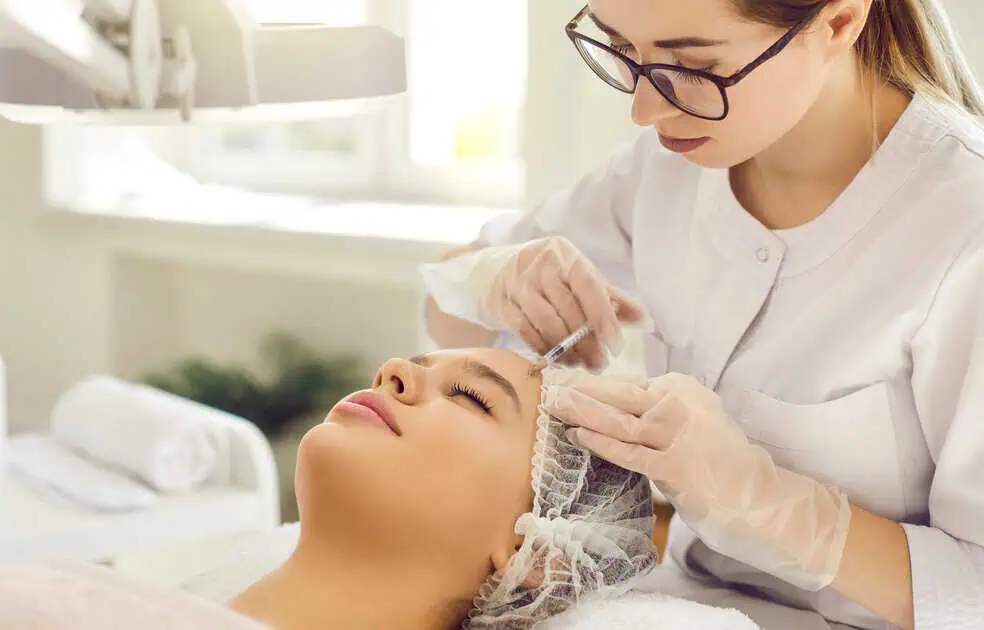Neurotoxins like Botox, Dysport, and Xeomin have become rapidly popular as injectable cosmetic treatments. Even at the height of the COVID epidemic, millions of people continued to seek this cosmetic treatment. As a result of the rising market, a growing number of medical spas and beauty centers are considering expanding the range of neurotoxin treatments they currently offer.
There is such a wide variety of options to choose from that it can be challenging to determine which ones can be trusted. How, then, can you, as a client, determine whether or not the aesthetician who will be administering your Botox injections has the appropriate training to do so? You are in luck, as the facts contained in this article will prove to be helpful to you.
Neurotoxins Injections Are FDA-Approved
The FDA has given all neurotoxin injections the green light. Even though the injections contain actual neurotoxin compounds, they are safe because they are only administered in extremely low doses. This is demonstrated by the fact that millions of people try these treatments yearly. However, this does not absolve you of the responsibility of conducting adequate research to locate a competent injector.
Since it has the potential to cause damage to the patient’s living tissue, the administration of a neurotoxin formulation that the FDA has approved in injectable form is considered a form of medical practice. Consequently, the individual giving the injection must be a licensed medical doctor, nurse practitioner, or qualified injector operating legally within their scope of practice.
To maintain good standing with your state’s medical and nursing boards, you must know which providers are mandated to administer specific medical procedures in your geographic area. The regulations governing who is legally permitted to distribute specific medical procedures vary from state to state.
Why Are There Limitations In The First Place?
Why are there so many limitations on who can or cannot give Neurotoxin injections, and why are they so stringent? Aren’t these just straightforward injections that call for straightforward training procedures?
Injections of the neurotoxin botulinum toxin type A are among the most popular choices in the United States for non-invasive cosmetic procedures. The FDA has given each injectable mentioned earlier the go-ahead for use in the cosmetic industry. They are all commonly used as a quick-fix anti-aging solution to temporarily reduce the appearance of wrinkles in the face and jawline.
Since these treatments are considered medical procedures, your state’s medical and nursing boards have strict regulations regarding delegation that must be followed. Risks, complications, and contraindications are associated with these neurotoxins. That means they can only be administered by trained medical professionals who have documentation of their training and are under the appropriate supervision.
Who Can Inject Neurotoxins?
Check with the licensing panel in your state if you want to inject neurotoxins legally or are looking for the right provider. Most states have listed people who are qualified to do so. Medical professionals, such as physician assistants, nurse practitioners, and registered nurses, are now legal in many states to provide this type of care to patients.
In some states, the administration of neurotoxin injections, whether for therapeutic or cosmetic purposes, is considered to be within the coverage of the dental practice. However, this requirement is contingent on the dentist receiving the appropriate training. Before beginning to perform the procedures or place orders for products, all that is necessary is for the doctors to obtain the proper training first.
Who Cannot Inject Neurotoxins?
Injecting is considered a form of medical practice; it is illegal for anyone who does not possess a valid medical license or prescribing authority to inject in any state. Since this is the case, a medical assistant can only administer injections while a physician watches over them. Giving injections and performing physical exams on people who are not medical professionals is an example of the unlicensed practice of medicine.
The best way to safeguard a medical aesthetic practice’s license, as well as the credentials of its supervising physician and injector, is to limit access to the administration of neurotoxins like Botox, Dysport, and Xeomin to only those practitioners who have been granted permission by the state medical board to carry out the procedures in question. If a patient has a negative experience and decides to sue the doctor, the doctor’s license could be revoked, and the clinic could face significant financial penalties.
Can Beauty Therapists And Aestheticians Provide Neurotoxin Injections?
Regarding this complicated matter, a variety of viewpoints have been voiced.
There is no medical training mandated to become an esthetician or another type of beauty therapist. Given this information, it is impossible for them to legally perform these kinds of procedures on themselves to enhance their appearance. However, they can be of assistance to the doctor by either taking photographs or providing service itself. However, certain aesthetic physicians or private medical spas may allow non-medical specialists to oversee neurotoxin injection treatments while under supervision.
Due to the high risk of harm that these practices pose, medical experts strongly advise against them, and in some states, they are outright prohibited. When it comes to cosmetic procedures, the only way to guarantee positive results and minimize the risk of complications is to have the procedure performed by a trained doctor or surgeon.
Medical professionals can conduct screenings on prospective patients to determine whether or not the patients should receive neurotoxin injections. This is especially consequential for people who suffer from severe allergies or asthma. It is essential to keep in mind that Botox injections almost always result in unintended side effects. Still, they are minor if carried out by a professional and should go away after a few days.
However, if something goes wrong, there may be significant repercussions. Some potential adverse effects include problems with breathing, vision, the appearance of sagging facial features, and infections.
Takeaway
Find a reliable local provider of neurotoxins to maximize the efficacy of your time, energy, and money. You can start this process by contacting and visiting Sei Tu Bella Aesthetics. What’s more, we provide a wide range of additional services to address various other health issues.







